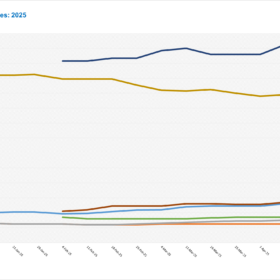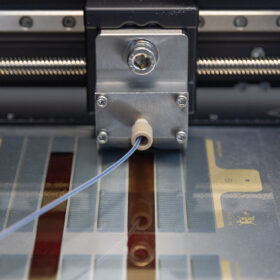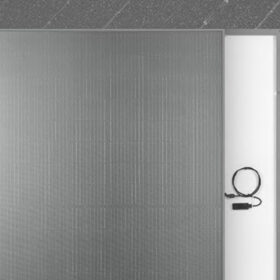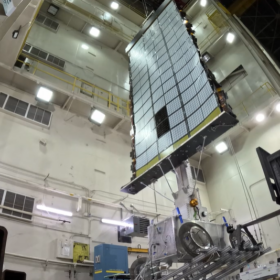FOB China module prices rise amid growing market expectations of sharp correction by end-Q2
In a new weekly update for pv magazine, OPIS, a Dow Jones company, FOB China TOPCon below 450 W modules for spot loading were stable at $0.093/W, with price indications between $0.087-0.100/W. Furthermore, it reveals that current price increases are not being uniformly adopted across all Chinese manufacturers, with significant price differences—often several euro cents— being observed between the Top 5 and Top 10 manufacturers.
InfinityPV unveils slot die coater for thin-film PV research
The customizable, compact sheet coater supports coating speeds from 1.2 mm/sec up to 33 mm/sec.
Determining mismatch losses in bifacial PV based on single-axis trackers
Scientists in Spain have proposed a novel way to calculate the structure shading factor and mismatch losses for the rear side of bifacial PV modules using one-axis trackers. They tested the new methodology in a real PV system and found it is able to establish a linear fit based on distance from the torque tube.
Waaree Energies to double its solar module manufacturing in Texas
This expansion comes at a critical time for the U.S. solar industry with much uncertainty around supply chains and pressure to increase domestic output.
FuturaSun releases 390 W silver solar panel
The Italian manufacturer said the new version of its silver module is ideal for grey roofs and buildings with modern architecture. It uses a 3.2 mm silver-coated glass and features a power conversion efficiency of 19.52%.
Korean researchers achieve world record efficiency of 23.64% for flexible perovskite-CIGS tandem solar cell
Scientists at the Korea Institute of Energy Research claim to have achieved the highest efficiency ever reported for a perovskite-CIGS tandem solar cell with flexible, lightweight architecture. The device was also found to achieve “excellent” durability.
Scientists testing perovskite-silicon tandem solar cells with interdigitated back contacts
A research team in Iran has designed a four-terminal perovskite-silicon tandem solar cells with a 19.3%-efficient bottom heterojunction cell and a 12.7%-efficient perovskite top cell. Both subcells were conceived to have interdigitated back contacts, with the top cell reportedly helping to improve the tandem device’s light-trapping and efficiency.
Oxford PV, Trina Solar enter patent licensing agreement for perovskite-silicon tandem solar
The exclusive license agreement covers the manufacture or sale of perovskite PV products for the Chinese market. A statement from Oxford PV says the agreement “underscores the industry consensus that perovskite-based PV technologies are the future of solar.”
Current UV tests overestimate TOPCon solar module degradation
Fraunhofer Institute for Solar Energy Systems ISE (Fraunhofer ISE) has found that current UV testing methods overestimate degradation in tunnel oxide passivated contact (TOPCon) solar modules, as dark storage after UV exposure causes temporary efficiency losses that largely reverse under sunlight.
Lockheed Martin developing vertical solar arrays for the Moon
The defense and aerospace company’s vertical solar array technology (VSAT) reaches up to 19.8 m in length. Lockheed Martin says the technology is capable of providing continuous and sustainable power for a range of lunar operations.










